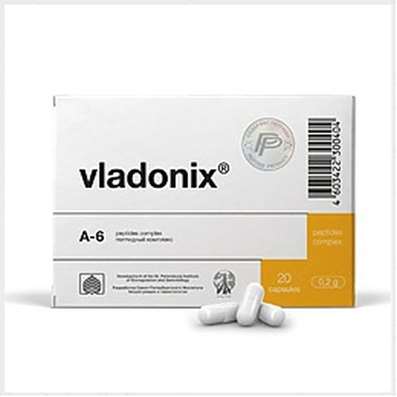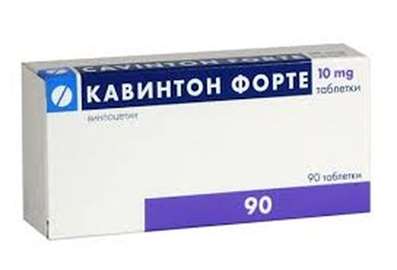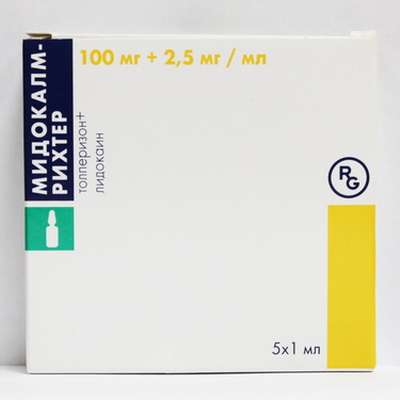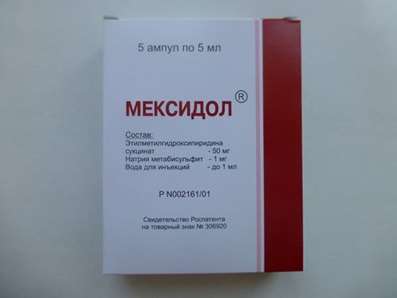Instruction for use: L-Thyroxin 50 Berlin-Chemie
I want this, give me price
Active substance Levothyroxine sodium
ATX Code H03AA01 Calcitonin
Pharmacological groups
Synthetic thyroid hormone [Thyroid and parathyroid hormones, their analogs and antagonists (including antithyroid agents) / 67 /]
Nosological classification (ICD-10)
C73 Malignant neoplasm of thyroid
Thyroid cancer, Thyrotropin-Dependent Thyroid Carcinoma, Anaplastic thyroid cancer, Thyroid carcinoma, Medullary thyroid cancer, Thyroid tumors, Papillary thyroid cancer
E01 Thyroid gland diseases associated with iodine deficiency and similar conditions
Hormonal deficiency of the thyroid gland due to iodine deficiency in the body, Goiter endemic, Iodine deficiency alimentary state, Iodine deficiency disease, Iodine Deficiency, Endemic cretinism
E02 Subclinical hypothyroidism due to iodine deficiency
E03 Other forms of hypothyroidism
hypothyroidism, Hypothyroid conditions, Thyroid hypothyroidism, Diagnosis of hypothyroidism, Myxedema, Primary hypothyroidism, Simple goitre,Spontaneous hypothyroidism, Iatrogenic hypothyroidism
E04.0 Non-toxic diffuse goiter
Diffuse nontoxic goiter, Diffuse euthyroid goiter
E04.1 Non-toxic single-nodular goiter
Thyroid Node, Nodular goiter of the thyroid gland
E07.8.0 * Euthyroid syndrome
Goiter after thyroid resection, Recurrence of goiter after resection of the thyroid gland, Euthyroid goiter, Euthyroid hyperplasia of the thyroid gland
Composition and form of production
L-thyroxine 50 Berlin-Chemie
Tablets 1 table.
Levothyroxine sodium 50 μg
Auxiliary substances: calcium hydrophosphate water; MCC; Carboxymethyl starch sodium salt (type A); dextrin; Long chain partial glycerides
In a blister of 25 pcs .; In a pack of cardboard 2 or 4 blisters.
L-thyroxine 100 Berlin-Chemie
Tablets 1 table.
Levothyroxine sodium 100 μg
Auxiliary substances: calcium hydrophosphate water; MCC; Carboxymethyl starch sodium salt (type A); dextrin; Long chain partial glycerides
In a blister of 25 pcs .; In a pack of cardboard 2 or 4 blisters.
Description of dosage form
L-thyroxine 50 Berlin-Chemie: flat on both sides tablets of light-blue color, with beveled edge and one-sided notch for division.
L-thyroxine 100 Berlin-Chemie: flat on both sides tablets from yellow to greenish-yellow, with beveled edge, equipped with a one-sided incision for division.
Characteristic
Synthetic levorotatory isomer of thyroxine.
pharmachologic effect
Pharmacological action - replenishing deficiency of thyroid hormones, thyroid.
After partial conversion into lyotyronine (in the liver and kidneys) and transition into the cells of the body, it affects the development and growth of tissues, the metabolism. In small doses, it has an anabolic effect on protein and fat metabolism. In medium doses stimulates growth and development, raises the need for tissues in oxygen, stimulates the metabolism of proteins, fats and carbohydrates, increases the functional activity of the cardiovascular system and the central nervous system. In large doses oppresses the production of thyrotropin-releasing hormone hypothalamus and thyroid-stimulating hormone of the pituitary gland.
Pharmacodynamics
Therapeutic effect is observed after 7-12 days, during the same time the action remains after drug discontinuation. The clinical effect with hypothyroidism is manifested in 3-5 days. Diffuse goiter decreases or disappears within 3-6 months.
Pharmacokinetics
When ingested, levothyroxine is absorbed almost exclusively in the upper part of the small intestine. Absorbed up to 80% of the accepted dose of the drug. Eating lowers the absorption of levothyroxine. C max in the blood serum is achieved 6 hours after administration. After absorption, more than 99% of the drug binds to serum proteins. In various tissues, monoiodiodination of levothyroxine occurs with the formation of triiodothyronine and inactive products. Thyroid hormones are metabolized mainly in the liver, kidneys, brain and muscles. A small amount of the drug is subjected to deamination and decarboxylation, as well as conjugation with sulfuric and glucuronic acids (in the liver). Metabolites are excreted in urine and bile. T1 / 2 - 6-8 days.
Indications of the drug L-thyroxine 100 Berlin-Chemie
Hypothyroidism (hypothyroidism of the thyroid gland) of any genesis: primary and secondary hypothyroidism, after operations on the struma, as a result of therapy with radioactive iodine (as a substitution therapy).
Prevention of recurrence (re-education) of nodular goiters after surgery for goiter with normal thyroid function.
Diffuse goiter with normal function.
As part of combination therapy in the treatment of thyroid hyperthyroidism with thyreostatics after achieving its normal function.
Malignant thyroid gland, mainly after surgery to suppress tumor recurrence and as a substitute therapy.
Contraindications
Increased individual sensitivity to the drug, acute myocardial infarction, untreated insufficiency of the adrenal cortex, hyperthyroidism.
With caution: for diseases of the cardiovascular system - IHD (atherosclerosis, angina pectoris, myocardial infarction in the anamnesis), arterial hypertension, arrhythmia; With diabetes mellitus; Severe long-term hypothyroidism; Malabsorption syndrome (dose adjustment is possible).
pregnancy and lactation
During pregnancy and breastfeeding, treatment should be continued. The use of the drug in pregnancy in combination with thyreostatics is contraindicated. Since thyreostatics, in contrast to levothyroxine, can penetrate the placenta, the fetus may develop hypothyroidism.
Side effects
Allergic reactions (skin rash, skin itching). When used in excessively high doses - hyperthyroidism (changes in appetite, dysmenorrhea, chest pain, diarrhea, tachycardia, arrhythmia, fever, tremor, headache, irritability, muscle cramps of the lower extremities, nervousness, sweating, difficulty falling asleep, vomiting, weight loss Body). When used in insufficiently effective doses - hypothyroidism (dysmenorrhea, constipation, dryness, puffiness of the skin, headache, lethargy, myalgia, drowsiness, weakness, apathy, weight gain).
Interaction
Levothyroxine increases the effect of indirect anticoagulants (possibly reducing their dose). With simultaneous application of cholestyramine reduces the plasma concentration of levothyroxine due to inhibition of its absorption in the intestine. Rapid intravenous injection of phenytoin increases the content of non-protein-bound blood plasma levothyroxine and lyotyronine. Salicylates, dicoumarol, furosemide in high doses (250 mg) intensify the action of levothyroxine, t. Can displace it from the binding sites with plasma proteins.
Dosing and Administration
Inside, on an empty stomach, at least 30 minutes before breakfast. The daily dose of the drug is established and monitored individually on the basis of laboratory and clinical survey data.
As experience shows, with a small body weight and in the presence of a large knotty string, a low dose is sufficient.
Unless otherwise prescribed, the following dosage recommendations apply:
With hypothyroidism of the thyroid gland the initial daily dose, for adults - 25-100 mcg, then the dose is increased according to the doctor's prescription every 2-4 weeks for 25-50 mcg until reaching a maintenance daily dose of 125-250 mcg; Children - 12,5-50 mkg, with a long course of treatment, the dose is determined by the body weight and the growth of the child (from an approximate calculation of 100 to 150 μg of levothyroxine sodium per 1 m2 of the body surface);
To prevent recurrence of goiter and for diffuse goiter in adults - 75-200 mcg / day;
In the combination therapy in the treatment of hyperthyroidism thyreostatics - 50-100 mcg / day;
When treating a malignant tumor, the daily dose is 150-300 μg.
The daily dose of the drug is determined individually, depending on the indications.
During pregnancy, the need for thyroid hormones increases, so it is necessary to inform the doctor about the pregnancy or the pregnancy that has occurred during the course of treatment so that, if necessary, it is possible to adjust the dose of the drug.
Overdose
Symptoms: thyrotoxic crisis, sometimes delayed for several days after taking.
Treatment: the appointment of beta-adrenoblockers, iv injection of GCS, plasmapheresis.
special instructions
If you need to prescribe other drugs that contain iodine, you need to consult a doctor. It is recommended to periodically determine the content of TSH in the blood, the elevated level of which indicates a dose failure. The adequacy of suppressive thyroid therapy is also estimated by suppressing the seizure of radioactive iodine. With a long-term multinodal goiter, a stimulation test with thyrotropin-releasing hormone should be performed before the start of treatment. In most cases with hypothyroidism, metabolic status should be restored gradually, especially in elderly patients and patients with cardiovascular pathology. For elderly patients, the initial dose should not exceed 50 μg. When used in the II and III trimesters of pregnancy, the dose is usually increased by 25%.
With caution appoint with severe long-term hypothyroidism of the thyroid gland. Before the start of treatment should be excluded the possibility of hypophyseal or hypothalamic hypothyroidism.
storage Conditions
At a temperature of 15-25 ° C.
Keep out of the reach of children.
Shelf life
3 years.
Do not use after the expiry date printed on the package.

 Cart
Cart





